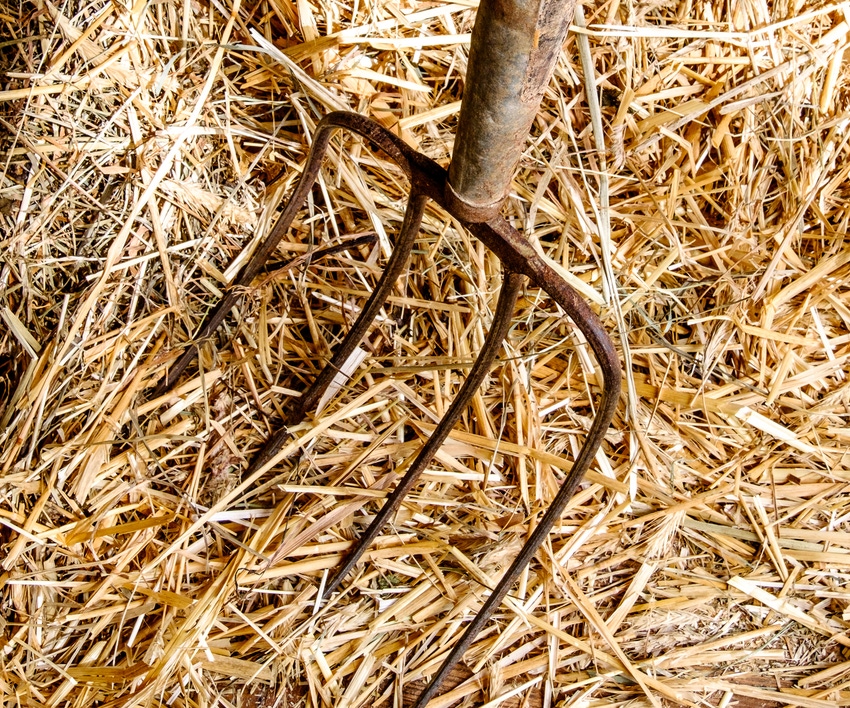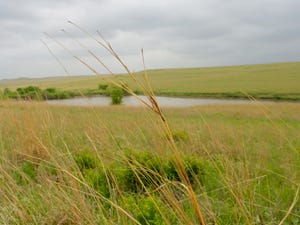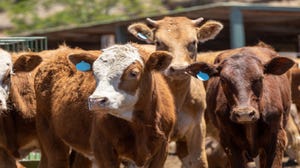Kids learn responsibility through doing; here’s how promoting a chore culture in teens through agricultural pursuits has benefited one school in New York City.
June 5, 2018

One of the best lessons I learned as a kid was with a pitchfork in my hand. Sure, my dad could have made scooping out the calving barn easier by simply hauling the manure out with a skid loader; however, I think he knew his three daughters would be better served with some manual labor.
Each summer, my sisters Courtney, Kaley and I had the tough job of cleaning out the barn, one pitchfork load at a time. We would fill up wheel barrows and dump them outside for Dad to haul away with the tractor and manure spreader.
It was hours of back-breaking labor, but if we wanted to have a clean barn for our 4-H heifers and steers, we had to do the work. So together, we cranked up the stereo and scooped until the barn was spotless and the conversion to show barn, complete with fans, mats and wood chips was complete.
Looking back on my childhood, I have so many memories from the ranch — working cattle, delivering bulls to customers, tagging and weighing newborn calves, baling hay and more — but for some reason, cleaning out the barn sticks with me the most.
It wasn’t just a lesson in hard work. It taught my sisters and I to work together toward a shared goal, pay attention to details, tackle a job from start to finish and to follow directions from our “boss,” even when it was an unpleasant task.
These skills have served me well in adulthood, and I imagine I will have my kids do similar jobs when they are old enough.
Living on a ranch, chores were just built into the day-to-day routine. And while my school friends had chores like “make your bed” and “set the table,” those were just expected of us, and we knew, the real work was outside.
So how do urban kids learn the value of hard work through chores? For one school in New York City, the teachers brought a little bit of country life into the urban jungle. A recent article highlighted on Intellectual Takeout discussed the importance of chores for kids.
According to writer Annie Holmquist, “The other day, NPR wrote a feature article about a unique program at John Bowne High School in New York City. Despite being in the heart of one of the biggest metropolises in the United States, John Bowne runs an agricultural program for upwards of 500 students.
READ: Charter school in Indiana opens on 600-acre farm
“Known as ‘Aggies,’ these students "grow crops, care for livestock and learn the rudiments of floriculture, viticulture, aquaculture, biotechnology and entrepreneurship."
“NPR says such a program is an excellent addition to the high school curriculum because agriculture is a booming industry. The students who participate in the program will accumulate a wide variety of hands-on experience with which they can land a job in the agriculture sector, a job which may even pull their families out of poverty.
“But while this is a great reason to encourage such a program, I think there’s a deeper reason why more schools – both urban and rural – should consider a similar one. In a nutshell, such a program promotes what one might call a ‘chore culture,’ a culture which instills hard work, responsibility, and the knowledge of basic skills which today’s society has lost,” Holmquist writes.
For the Aggies at John Bowne High School, the day begins before the school bell rings. Students clean the stalls, feed the goats, alpacas and miniature cows, collect eggs, harvest vegetables and tidy up the barn before heading to class.
Holmquist says these simple chores allow the students to learn about where their food comes from, being responsible for livestock, and earning money from the products they grow on their urban farm.
I love that a program like this exists. What a great opportunity for city kids to learn from doing. It allows them to connect to the land, livestock and themselves, and I wish we would see more programs like this across the country.
After all, a little mud never hurt anybody, and there’s nothing that some time spent with a pitchfork in hand can’t fix!
About the Author(s)
You May Also Like





